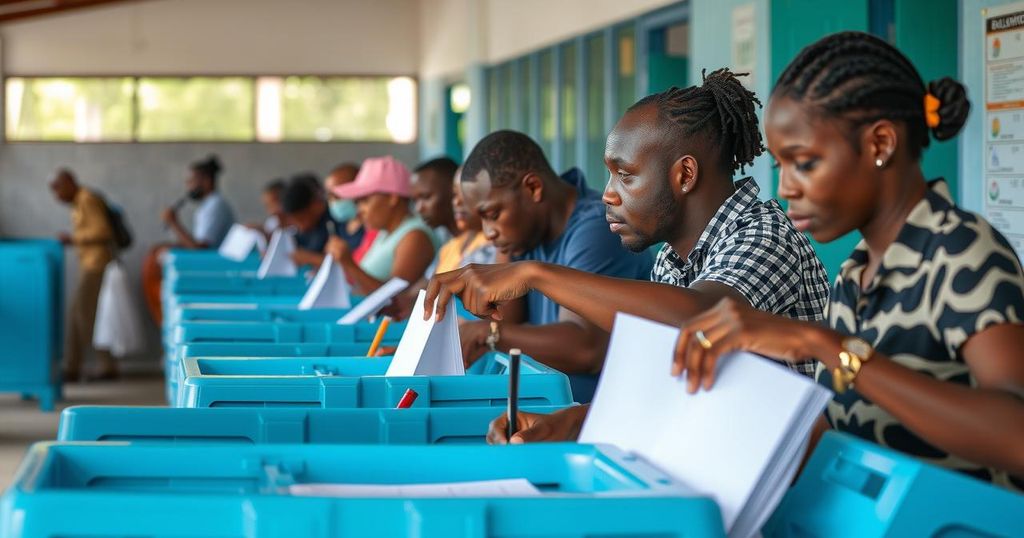Comoros Elections Marked by Opposition Boycotts and Controversy

Comoros held elections on Sunday amid a boycott by opposition groups citing transparency issues. Nour El-Fath Azali, the president’s son, is a prominent candidate. Several polling stations experienced delays and questionable arrangements, prompting concerns about voter privacy. The ruling CRC party is expected to maintain control of parliament as many constituencies lack competition. Election integrity continues to be a contentious issue following President Azali’s disputed re-election earlier this year.
On Sunday, the Indian Ocean nation of Comoros commenced elections for its lawmakers, yet numerous opposition factions opted to boycott the vote, citing a lack of transparency in the electoral process. Among the candidates is Nour El-Fath Azali, the eldest son of Comorian President Azali Assoumani, who is contesting for a seat in a district near the capital, Moroni.
Reports indicated that several polling stations opened late due to late delivery of voting materials. An observer from the U.S., James Burns, noted that election officials had to be creative in setting up voting arrangements, with one station consisting merely of two panels around a table. Other setups lacked privacy; for instance, one booth was simply a box placed on a chair, which hindered voter confidentiality.
Nour El-Fath Azali previously served as a private adviser to his father, who assumed the presidency following a coup in 1999. His recent appointment as the Secretary General has prompted criticism, as it affords him powers similar to that of a de facto prime minister by enabling him to approve all governmental decrees. Following a contentious election earlier in January 2024, which saw claims of fraud, President Azali had been re-elected and is projected to remain in power until 2029.
Despite adverse weather, President Azali expressed gratitude for the absence of violence during the campaign and acknowledged the importance of constructive opposition in the electoral process. Meanwhile, a voter lamented that he had not received the indelible ink on his finger, indicating concerns about the integrity of the voting process.
The ruling party, the Convention for the Renewal of the Comoros (CRC), is anticipated to secure a substantial majority, particularly in regions where they face no contest. In total, thirty-three parliamentary members will be selected through a two-round voting procedure, with the second round slated for February 16. Critics continue to voice concerns regarding the fairness of the elections and the atmosphere of intimidation surrounding them.
The political landscape in Comoros has been marked by instability and accusations of electoral fraud. President Azali Assoumani has faced significant criticism from opposition parties regarding the legitimacy of his rule. His 2024 re-election followed a volatile climate that resulted from protests and claims of vote manipulation. The opposition’s reluctance to participate in these elections underscores a deep mistrust of the electoral system, complemented by recent allegations of fraud and government overreach.
In summary, the elections in Comoros faced significant opposition boycotts largely due to concerns regarding transparency and electoral integrity. The influential role of Nour El-Fath Azali and the dominance of the CRC suggest a continuation of the status quo. Observers report logistical challenges at polling stations, raising further questions about the credibility of the electoral process. With a substantial number of uncontested seats, the anticipated outcomes reflect a troubling trend of diminishing democratic engagement in the Comorian political arena.
Original Source: www.arabnews.com







